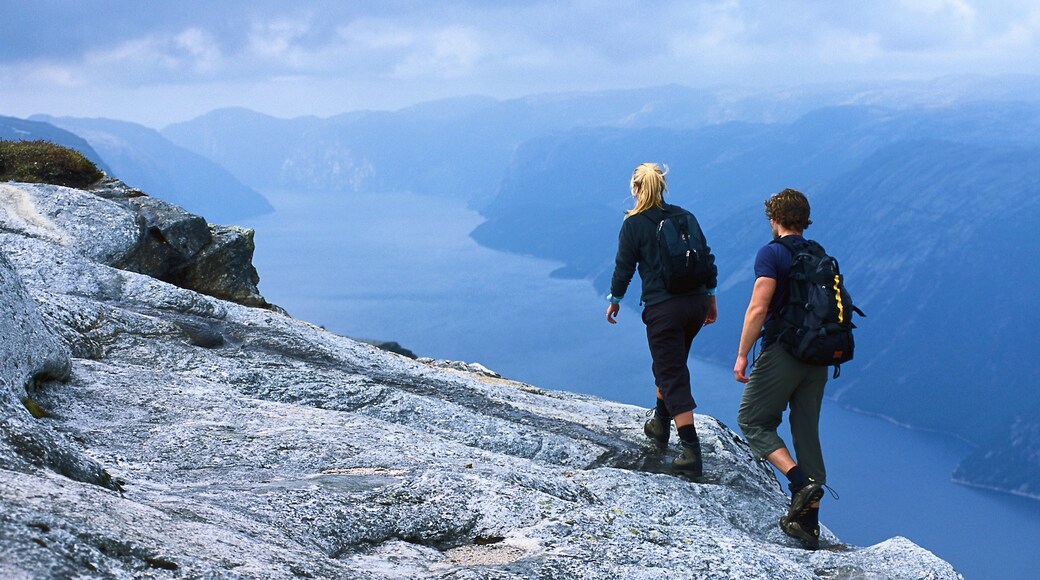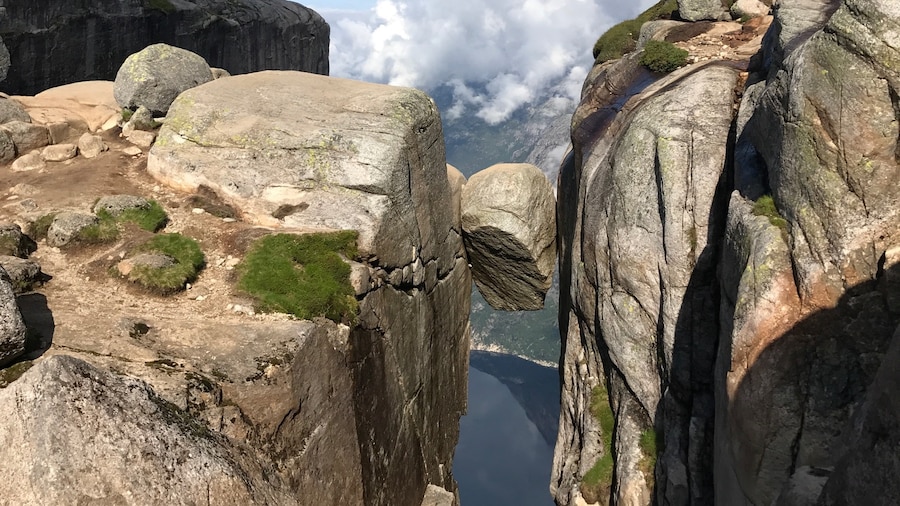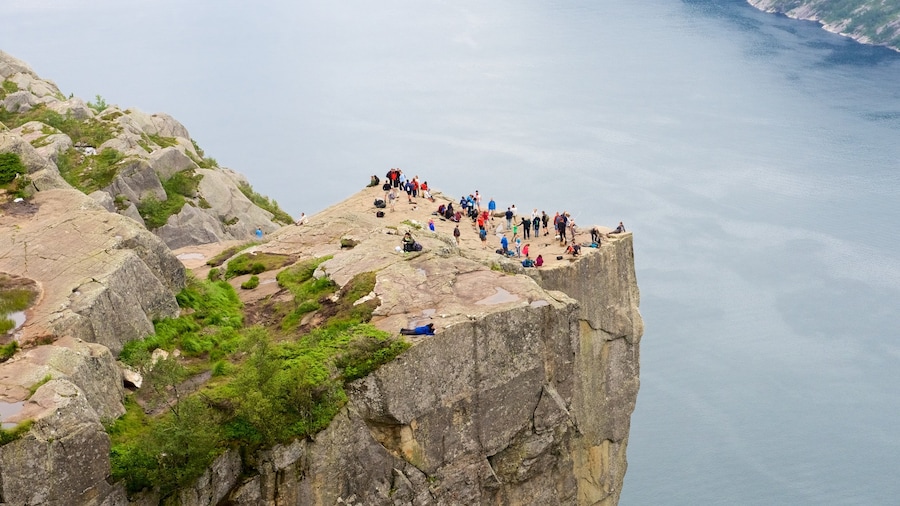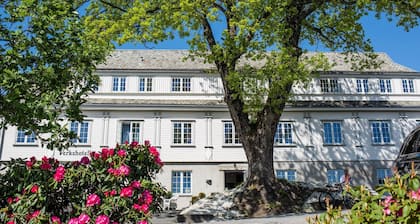Visit the Kjerag Plateau for comprehensive views of the majestic Lysefjord. Be sure to pack a camera to capture the angular outcrops, precariously perched boulders and placid waters of this gorgeous locale.
Put on your hiking shoes to conquer the steep trail to the plateau. The walking path has been developed with markings and chains, although its high winds and steep slope require a reasonable level of fitness. As you walk, enjoy panoramic views of barren rocks and polished crags interspersed with hardy vegetation. Be sure to pack layers to be comfortable in varying weather and bring food and water for the day.
Once you reach Kjerag, the plateau opens up onto a spectacular view of the Lysefjord. Look down vertical cliffs that hang over the water below. Hike to its northern drop, which sits at 3,300 feet (1,000 metres), for panoramic views of the wilderness countryside.
The Lysefjord is a 26-mile (42-kilometre) canyon in the landscape that was formed by a glacier over 10,000 years ago. Look across the fjord to see the Preikestolen or Pulpit Rock, one of the region’s most famous landmarks. This angular outcrop is named for its unusual sharp-edged plateau that looks like a preacher’s pulpit.
Stop at the Kjeragbolten or Kjerag Boulder, a granite boulder that is firmly wedged in a small crack in the clifftop. Brave hikers can climb atop the boulder for a thrilling photo above a sheer 3,000-foot (900-metre) drop to the water below.
For a less taxing view of the Kjerag, take a trip on a tourist ferry through the fjord below. Spot mountain climbers and BASE jumpers chasing thrills while you photograph the breathtaking steepness of the cliff sides.
Kjerag’s hiking trail begins at the Øygardstøl parking area. Get here by a 2-hour car or bus from Stavanger, climbing the gorgeous hairpin bends on your way. The hike takes approximately 5 hours for a round trip and is available only in summer, when the trail is clear of snow.










